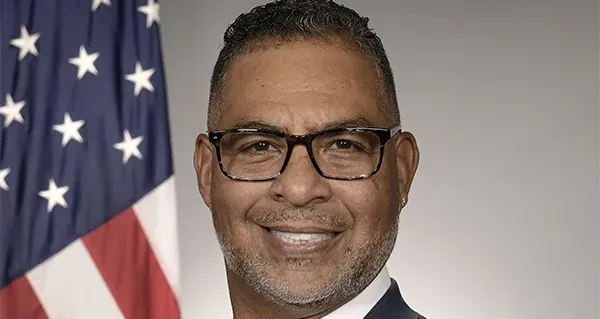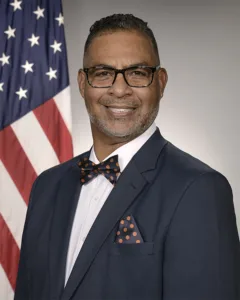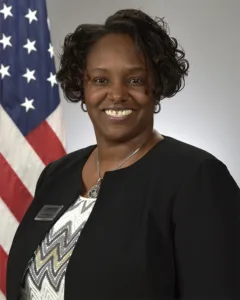The Exceptional Family Member Program (EFMP) is a congressionally mandated enrollment initiative designed to support military families with loved ones who have special needs. Its mission is to support active-duty service members and their families by helping them get assigned to locations where appropriate medical, educational and community support services are available. The program is designed to minimize the impact of special needs on service members’ careers and families by facilitating access to essential resources and support.
EFMP collaborates with both military and civilian agencies to connect families with vital resources in healthcare, education, housing, community support and personnel services. The program helps families navigate the challenges of military life with the support they need to thrive. It also streamlines duty assignments by matching them with available local resources for special needs, so families remain together and supported. Additionally, the program offers coordinated support during permanent change of station (PCS) moves, working with the gaining installation to assist with continuity of care and services, making transitions smoother for families.
For this article, we sat down with De’Anzo Williams and Victoria Henderson, the EFMP Family Support (FS) Coordinators at Peterson Space Force Base in Colorado Springs, Colorado. Together, they offered insight into EFMP’s mission and shared valuable tips for families navigating PCS.
Meet the experts
De’Anzo Williams holds a master’s in special education from the University of Colorado at Colorado Springs. With over two decades of experience, he has taught in schools and residential facilities, empowering students with diverse needs. Currently, he supports service members and individuals with special needs through EFMP at Peterson.
Victoria Henderson, a Colorado native with degrees in Architectural Drafting and Early Childhood Education, has supported military families since 1990. She became an EFMP FS Coordinator at Peterson in 2023 and connects families to resources and fosters self-advocacy with compassion and dedication.
Making permanent change of station easier for military families
Moving is never easy, and for military families with special needs, PCS season can feel especially overwhelming. From managing medical records to coordinating care at a new duty station, the to-do list can seem endless. Fortunately, EFMP FS Coordinators are here to assist. Whether you’re new to the EFMP or looking to maximize its resources, we’ve provided some essential tips, helpful insights and practical advice to ease your transition. From understanding EFMP’s benefits to preparing for your next move, the program is here to help make the process as smooth as possible.
8 tips for a seamless PCS transition
- Stay organized with medical records
Make sure all medical documents for your family members are current and complete. Request multiple copies of key items such as evaluations, individualized education plans (IEP), 504 plans and success strategies—especially for school-age children. Pro tip: Keep these documents with you during the move. Don’t pack them in boxes destined for the moving truck.
- Plan ahead for appointments
Specialist appointments can be difficult to schedule, especially right after a PCS. Experts recommend booking specialist appointments 3–6 months ahead of your relocation. Work with your current EFMP office to get referrals and connect with the EFMP team at your new duty station. These local experts can guide you to the best community resources available.
- Travel smart with equipment and supplies
If your loved one depends on medical equipment, plan carefully:
- Medications: Bring at least a three-month supply if possible. If extended supplies aren’t allowed, flag this when scheduling with your new provider to prevent gaps in care.
- Equipment: Keep essential items—like inhalers or rescue medications—within reach. Let your doctors know about the transition so they can help expedite care if needed.
- Prepare for school transitions
For families with school-aged children, a smooth transition involves proactive planning:
- Organize records: Bring copies of immunizations, evaluations, IEPs and 504 plans to share with the new school’s team.
- Communicate with educators: Keep an open dialogue with the school’s staff. Track your conversations and share strategies that work well for your child.
- Leverage resources: EFMP Coordinators, School Liaison Program Managers (SLPM) and programs like Family Voices can help connect you to local support.
- Encourage advocacy: When appropriate, involve your child in self-advocacy to build their independence and confidence.
- 5. Use EFMP’s built-in tools
The EFMP & Me Guide is a valuable resource for organizing essential information. Use it to simplify your move and map out a plan for your new duty station.
- Join online communities
Installation Facebook groups and other online forums are great for connecting with families in similar situations. Join groups specific to your new location to get insights, share experiences and learn about events and resources for special needs families. Building a virtual support system ahead of time can make a huge difference.
- Stay on top of essential documents
Before leaving your current duty station, work with your losing FS Coordinator to finalize DD Form 3054. This form is a living document that they will share with the gaining FS Coordinator to communicate your EFMP’s current needs to support a smooth transition. Make multiple copies of all critical documents and store them securely for the move.
- Communicate your needs through EFMP
The best advice? Stay connected!
- Regularly check in with your current EFMP FS office.
- Reach out to the EFMP office at your gaining installation ahead of time to introduce yourself and communicate services required prior to arriving
- Use EFMP for more than just medical needs—ask about community events, respite care and other support services.
- Remember: you’re never a bother. EFMP is there to provide services.
Maxim Healthcare offers extensive home health, personal care and behavioral care services to the military community. To learn more about the services available near you, contact your local Maxim office. You’ve served us; now let us serve you.



